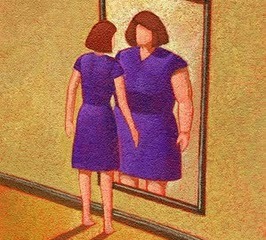How To Talk To Your Doctor About Your Eating Disorder
 Coming to the realization that you have an eating disorder can be difficult and even overwhelming. An eating disorder affects everything from physical health, to mental health, and even personal relationships; it may seem impossible to talk with someone who will understand what you are going through.
Coming to the realization that you have an eating disorder can be difficult and even overwhelming. An eating disorder affects everything from physical health, to mental health, and even personal relationships; it may seem impossible to talk with someone who will understand what you are going through.
If you’ve made the decision to talk to your doctor about your eating disorder, you may wonder what that conversation might look like. You may have questions about how to bring up the subject of your eating disorder. You may worry about the kinds of things should you ask your doctor when you broach the subject.
What can you expect your healthcare provider to say to you? In this article we will explore some possibilities about how to talk to your doctor about your eating disorder.
What You Say to Your Doctor Stays Confidential Unless You Are a Minor
One thing to understand is that if you are over the age of 18, anything you say to your healthcare provider must remain confidential according to the law. Your doctor cannot share your medical records or divulge any of your conversations to anybody and this includes even your parents or spouse. This should provide you some peace of mind about discussing a difficult subject such as an eating disorder. Your privacy will be protected.
Knowing that your conversation will remain confidential should allow you to be honest and forthcoming with your doctor. The support you can receive from your doctor will be greatest if you don’t withhold any important information. Tell your doctor the whole entire truth.
If you are under the age of 18, your doctor will be obligated to share this information with your parent or legal guardian. However, this may make it easier to talk about with your family members. Your doctor can be there with you when your secret is revealed, rather than having to do it alone. It is best to have the support of you parents to recover from your eating disorder and having a trusted healthcare professional beside you when you tell your family may make it a little easier.
Be Prepared to Be Honest
Your doctor is going to be particularly interested in the dysfunctional coping behaviors you engage in that involve food. Be prepared to share what you have been doing whether it is denying yourself food, regurgitating food, or putting too many spices food it so it is inedible. Also be ready to share any other behaviors like using laxatives, enemas, or diuretics, or over exercising. Your doctor will want to know how often you engage in these behaviors, and how long you have been doing it. This will give him or her an idea of the severity and duration of your eating disorder.
Your Doctor Will Not Judge You But Will Be a Resource for Your Recovery
You can expect your doctor to maintain a professional calm distance as you share about your eating disorder. He or she will not judge you nor criticize you. Your doctor should offer support and refer you to other healthcare providers like mental health specialists, psychologists, counselors, and nutritionists to make sure you get the care you may require.
In addition, your doctor will most likely want to take measurements such as your body weight, your body fat, and perhaps do some tests like an electrocardiogram, bone scan, and even laboratory tests to see how your organs are functioning and if you have any electrolyte or hormonal imbalances due to your eating disorder. He or she will probably also ask about various symptoms you may have like intolerance to cold, fine hairs covering the body, fatigue, mood swings, bleeding gums, and when the last time you menstruated was, if you are a female. Again, this information provides information on the severity of your eating disorder.
Making the brave decision to tell someone about your struggle with an eating disorder may be scary but if you choose to tell your doctor first, you can expect to get support. You will be guided toward treatment options and your health will be assessed. Telling someone is often a first step in from an eating disorder. If you choose to tell you doctor now you have an idea of what to expect.
 Eating Disorder Self Test. Take the EAT-26 self test to see if you might have eating disorder symptoms that might require professional evaluation. All answers are confidential.
Eating Disorder Self Test. Take the EAT-26 self test to see if you might have eating disorder symptoms that might require professional evaluation. All answers are confidential.